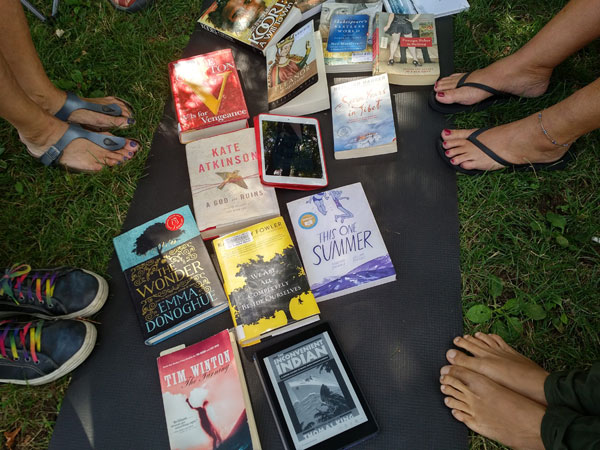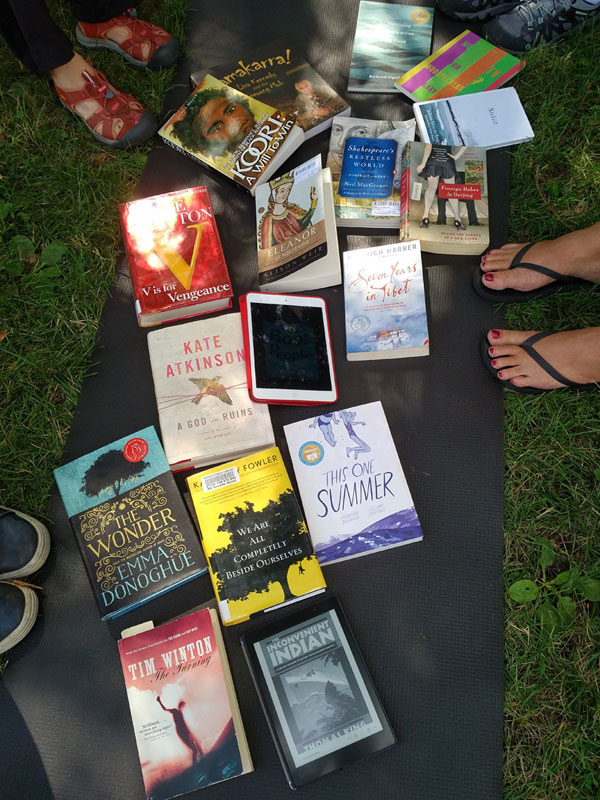As I confessed recently, 2018 was a challenging reading year for me. I read some great books and attended some memorable readings and book events, but how I read (mostly books, sometimes on screen) and my normal reading tempo was impeded by vision problems. My vision deteriorated in an alarmingly short period of time due to the swift and severe onset of cataracts. (I didn’t mind being told I was too young to be experiencing this problem so acutely, but that was the only meagre comfort at the time.)
For a time, I didn’t know if these vision problems would be protracted or even permanent. If it was, I knew I had to accept changing how I read and would have to adapt accordingly. Other readers read in other ways, and I could too if I had to. As it turns out, surgery and support from excellent professionals means I’ll be able to continue casting my gaze on the printed page, my preferred way of reading. I’m grateful I have that option, and have heightened respect for those who come to the written word with patience and resourcefulness in other ways.
Because I was tussling just to read, I didn’t write about my reading much this year – except, as you may have noticed, about our beloved silent book club. Still, I did my best to share a few thoughts on my reading as I went along, and managed to put up some snippets on Goodreads, Twitter and even Instagram. Sometimes those wee comments sparked a bit of conversation with fellow readers, which was nice and some continued reassurance that not all of social media is a relentless dumpster fire.
I continued my commitment in 2018 to a daily devotion to at least one poem … and usually more, as friends on Twitter continued to generously share their poem choices and reflections via the #todayspoem hashtag. I’m now heading into my eighth uninterrupted year of poetry tweets. In 2017, I gathered up all my tweets here. I’ll try to do something similar with my 2018 #todayspoem tweets in the near future.
Another reading practice that sparks joy (ahem) as I navigate through books is that of #sundaysentence, tirelessly championed and curated by author David Abrams. Seeking a weekly gem seems to sharpen my attention when I’m reading, and I love discovering new works through the #sundaysentence choices of other readers.
An important milestone this reading year just past is that my treasured but admittedly battered, over 35-year-old book of books got a much needed restoration.
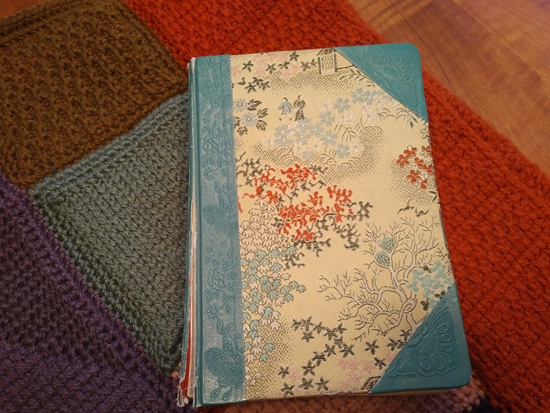
My husband arranged for the book (in which I’ve recorded my reading since I graduated from university in 1983) to be beautifully rebound, by bookbinder Don Taylor. If you need something that further sparks reading joy, get yourself a gorgeous book in which to record your reading – you won’t regret it.
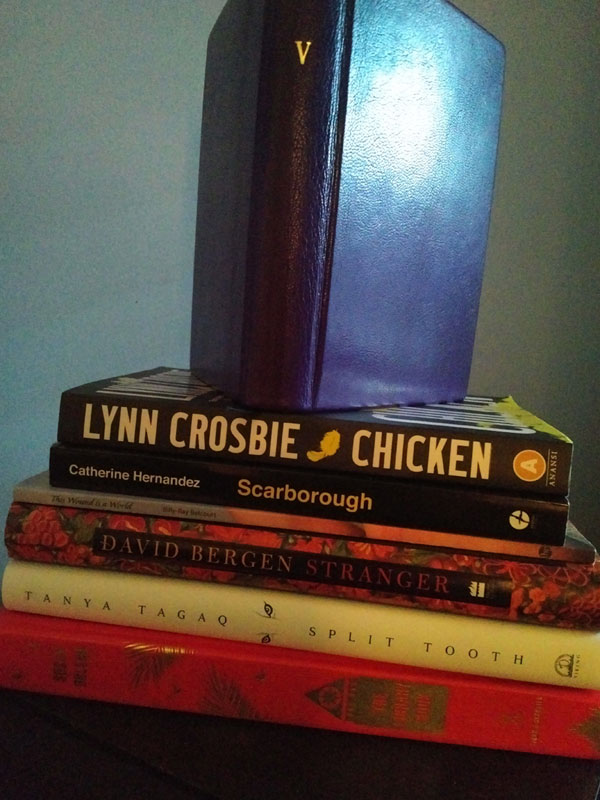

Here are the books I read and read aloud in 2018, with a few recollections of where I was when I was reading them.
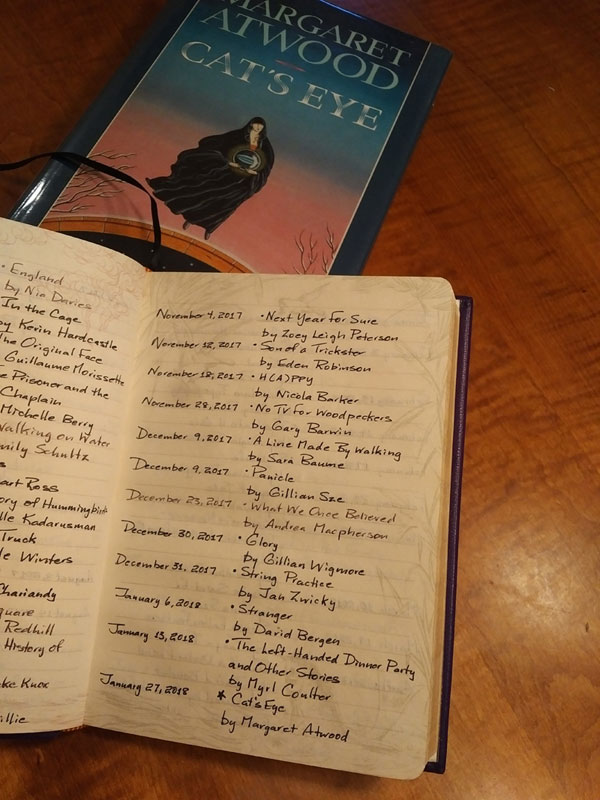
- Stranger, by David Bergen
- The Left-Handed Dinner Party and Other Stories, by Myrl Coulter
- Cat’s Eye, by Margaret Atwood … here too
This was the only book I reread this year, but it was a splendid one to revisit. As I remarked at the time, it’s a moving, intimate and instructive look at how women can be each other’s best allies and worst enemies.
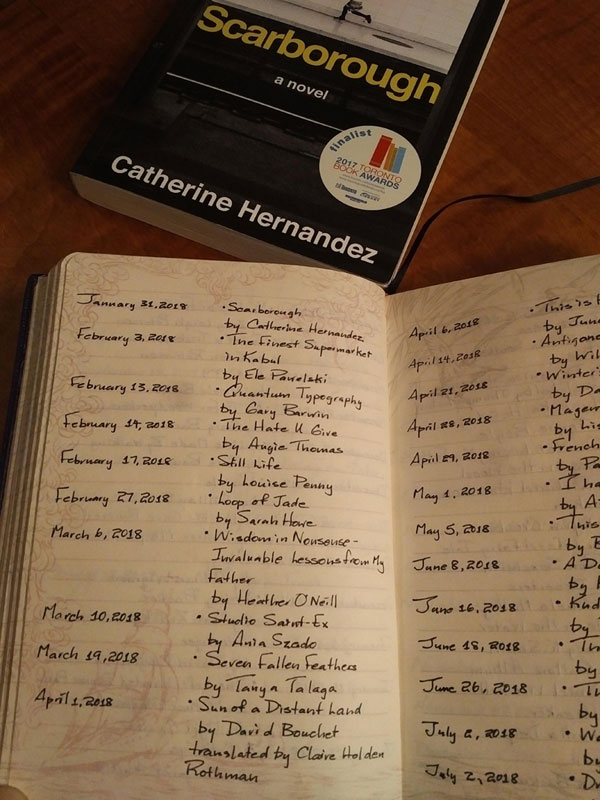
- Scarborough, by Catherine Hernandez
- The Finest Supermarket in Kabul, by Ele Pawelski
This book was good company during my subway travels.
- Quantum Typography, by Gary Barwin
- The Hate U Give, by Angie Thomas
- Still Life, by Louise Penny
I very much enjoyed this introduction to Louise Penny and Chief Inspector Armand Gamache thanks to enthusiastic recommendations from my silent book club friends.
- Loop of Jade, by Sarah Howe
- Wisdom in Nonsense – Invaluable Lessons from My Father, by Heather O’Neill
- Studio Saint-Ex, by Ania Szado
- Seven Fallen Feathers, by Tanya Talaga
- Sun of a Distant Land, by David Bouchet, translated by Claire Holden Rothman
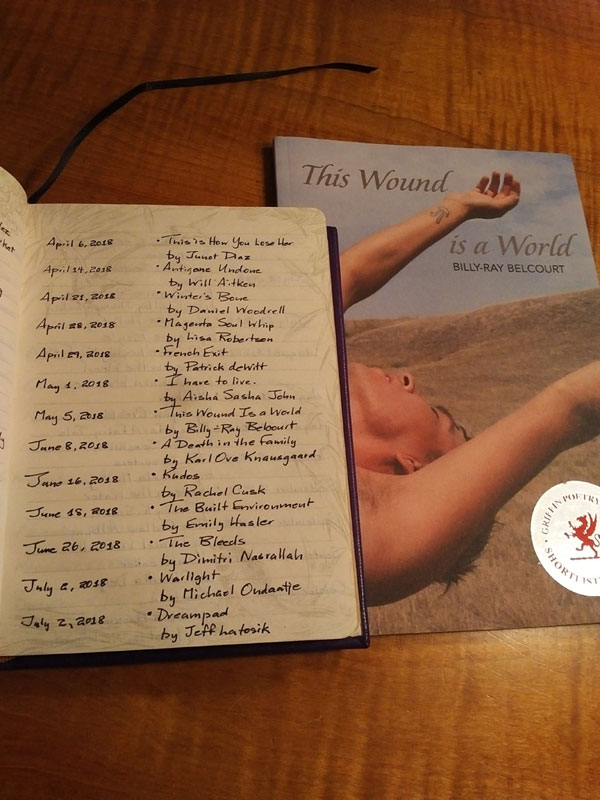
- This is How You Lose Her, by Junot Diaz
- Antigone Undone, by Will Aitken
Not only was the book captivating, but it was great to hear about it firsthand from Aitken and Anne Carson (gasp!) about a month later at the Toronto Reference Library.
- Winter’s Bone, by Daniel Woodrell
This stunning book was a Little Library find!
- Magenta Soul Whip, by Lisa Robertson
- French Exit, by Patrick deWitt
- I have to live. by Aisha Sasha John
- This Wound Is a World, by Billy-Ray Belcourt
- A Death in the Family, by Karl Ove Knausgaard
- Kudos, by Rachel Cusk
- The Built Environment, by Emily Hasler
I enjoyed both Kudos and The Built Environment at silent book club.
- The Bleeds, by Dimitri Nasrallah
- Warlight, by Michael Ondaatje
- Dreampad, by Jeff Latosik
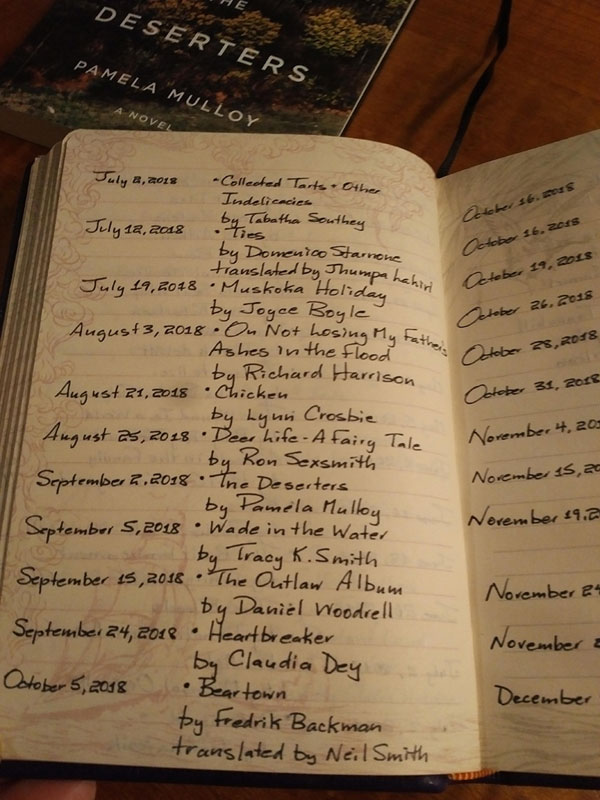
- Collected Tarts & Other Indelicacies, by Tabatha Southey
My husband and I read this book aloud. Much, much laughter …!
- Ties, by Domenico Starnone, translated by Jhumpa Lahiri
- Muskoka Holiday, by Joyce Boyle
My husband and I read this book aloud at the cottage. I remember quite vividly that this was when my vision was just about at its worst, about a month before the first of two eye surgeries. I was pleased to be able to read this book, though, because of its large print.
- On Not Losing My Father’s Ashes in the Flood, by Richard Harrison
- Chicken, by Lynn Crosbie
- Deer Life – A Fairy Tale, by Ron Sexsmith
- The Deserters, by Pamela Mulloy
If you’ve read them both, you might not think Lynn Crosbie’s Chicken and Pamela Mulloy’s The Deserters have much in common. I gathered notes for, but my weary eyes never allowed me to complete a review comparing the two books on the theme of troubled relationships.
- Wade in the Water, by Tracy K. Smith
- The Outlaw Album, by Daniel Woodrell
- Heartbreaker, by Claudia Dey
- Beartown, by Fredrik Backman, translated by Neil Smith
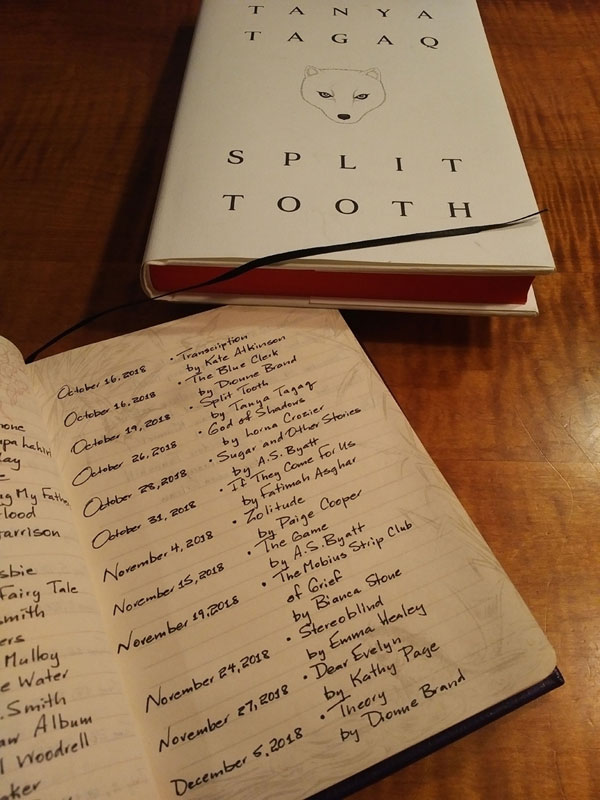
- Transcription, by Kate Atkinson
As I remarked when I finished it, Transcription‘s Juliet is an endlessly fascinating creature – who, of course, we still don’t entirely know in the end – and her adventures and dilemmas are absorbing and, at times, horrifying. This incredible book was a favourite amongst the readers in our silent book club, and a bunch of us went to here her read from it and converse with Rachel Giese at the lovely Church of the Holy Trinity in downtown Toronto.
- The Blue Clerk, by Dionne Brand
Both a stunning book and a gorgeous book object, this was one of the most pleasurable reading experiences of my year.
- Split Tooth, by Tanya Tagaq
- God of Shadows, by Lorna Crozier
- Sugar and Other Stories, by A.S. Byatt
- If They Come For Us, by Fatimah Asghar
- Zolitude, by Paige Cooper
- The Game, by A.S. Byatt
- The Mobius Strip Club of Grief, by Bianca Stone
- Stereoblind, by Emma Healey
- Dear Evelyn, by Kathy Page
- Theory, by Dionne Brand
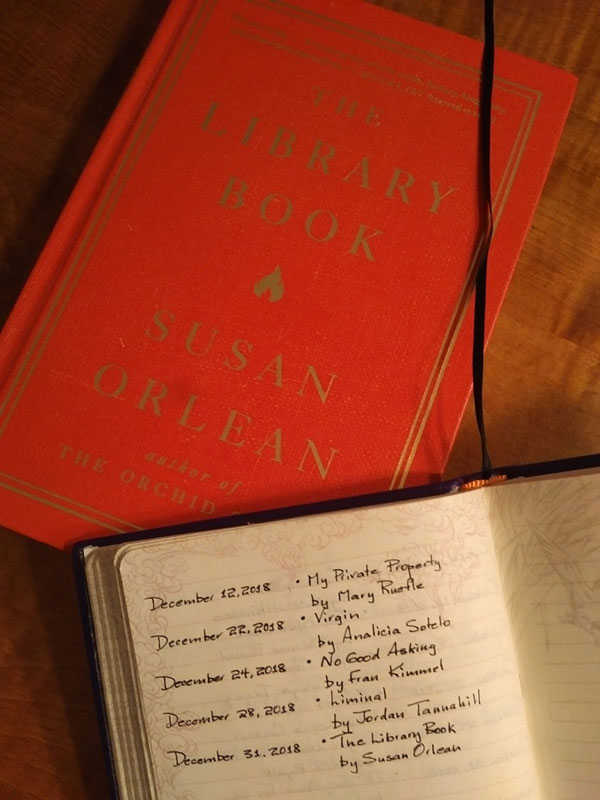
- My Private Property, by Mary Ruefle
- Virgin, by Analicia Sotelo
- No Good Asking, by Fran Kimmel
- Liminal, by Jordan Tannahill
- The Library Book, by Susan Orlean
We read this aloud – voraciously and with immense delight – and finished it on New Year’s Eve, which felt rather perfect.
In 2018, I read a total of 54 works: 33 works of fiction (novels and short story collections), 16 poetry collections and 5 works of non-fiction. I reread one book, read 4 works in translation, and read 36 works by Canadian authors. My husband and I read three books aloud to each other this year and have another one in progress as we greet the new year.
I also kept track this year of the publication dates of the books I read. In 2018, the oldest book I read was published in 1953, and I also read books published in 1967, 1987 and 1988, fulfilling last year’s intention to read some more older books. Exactly half of the books I read in 2018 were published in 20 18.
Currently in progress, heading into 2019:
For yet another year, I’m looking back fondly on my 2018 reading, looking forward eagerly, with anticipation and even some curiosity to my 2019 reading, I’ll simply conclude (as I always do) …
It’s not how many you read that counts. It’s that you read that counts.
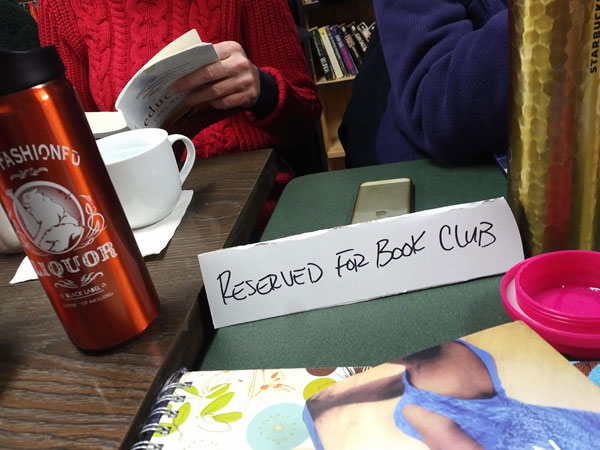
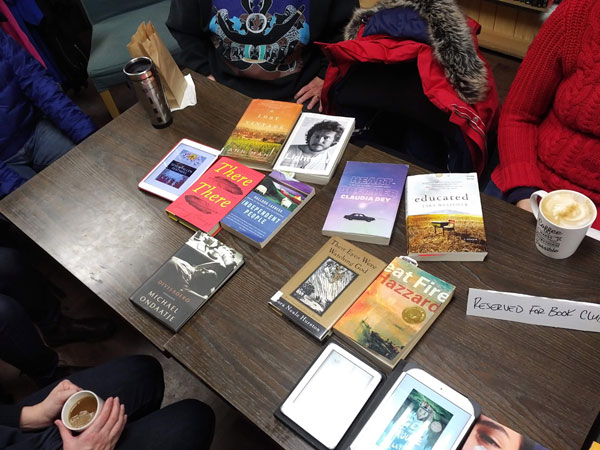
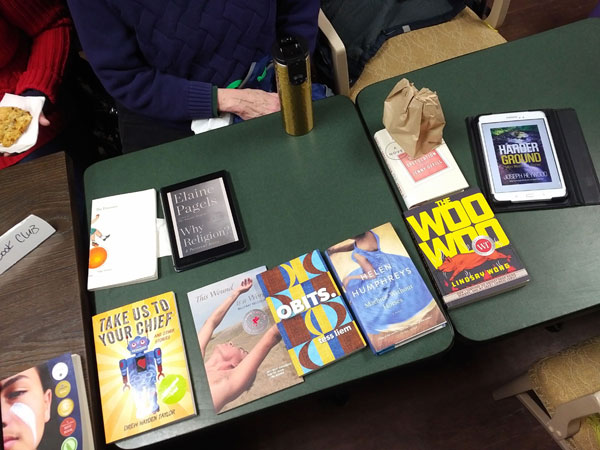










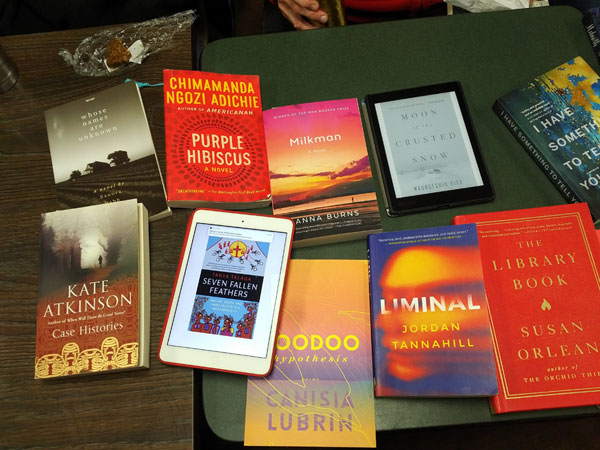
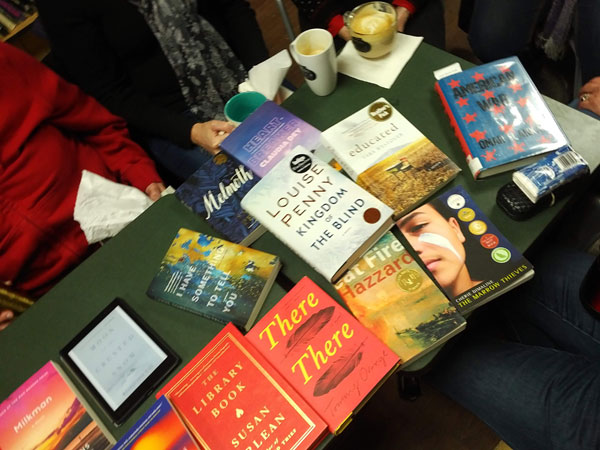

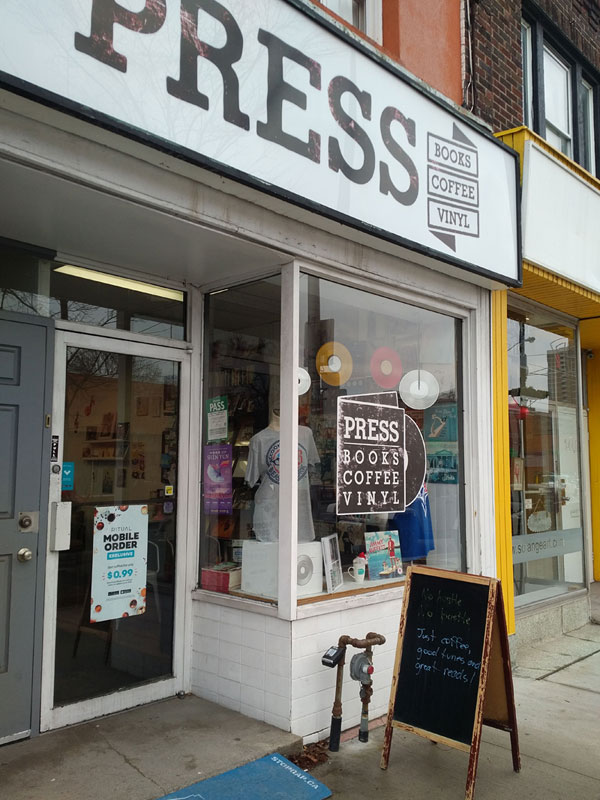
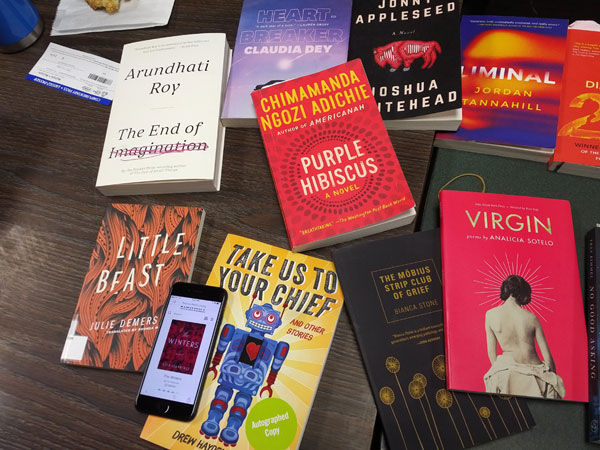
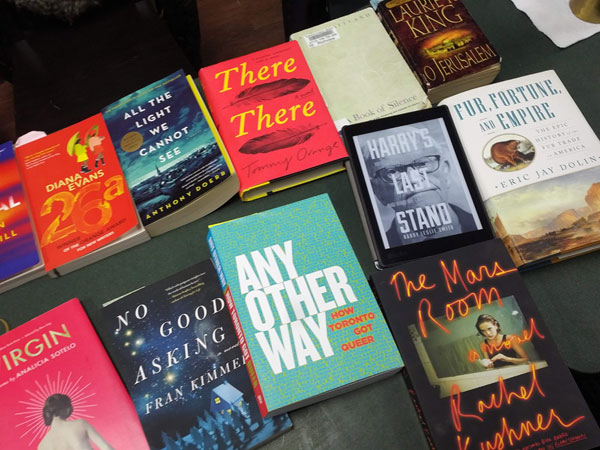
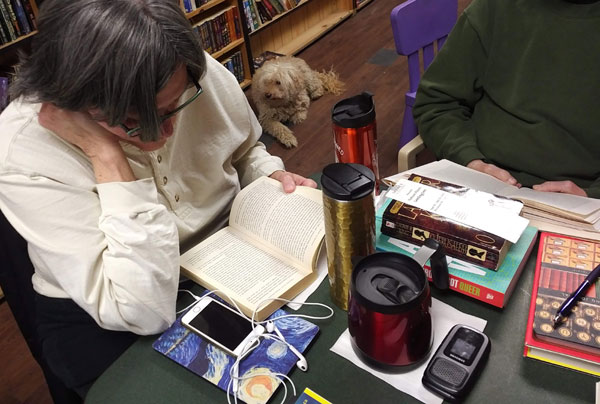
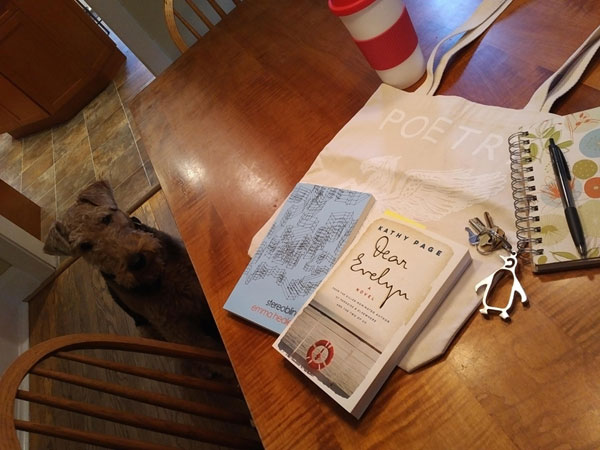
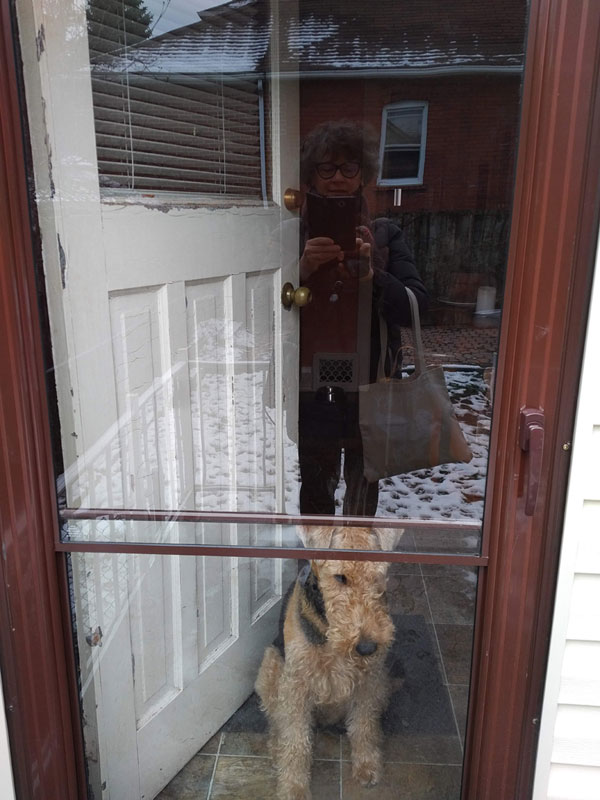
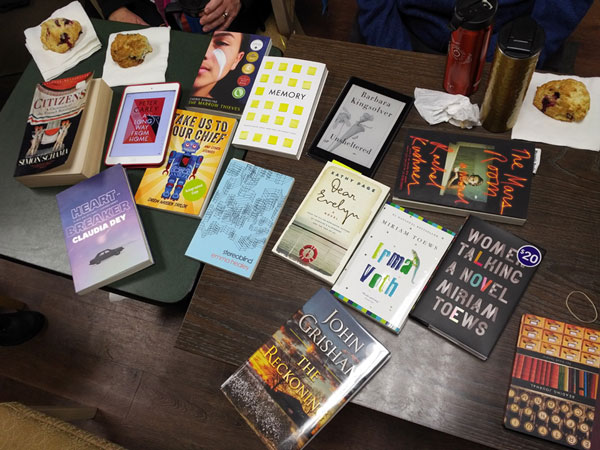
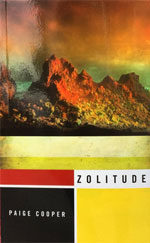
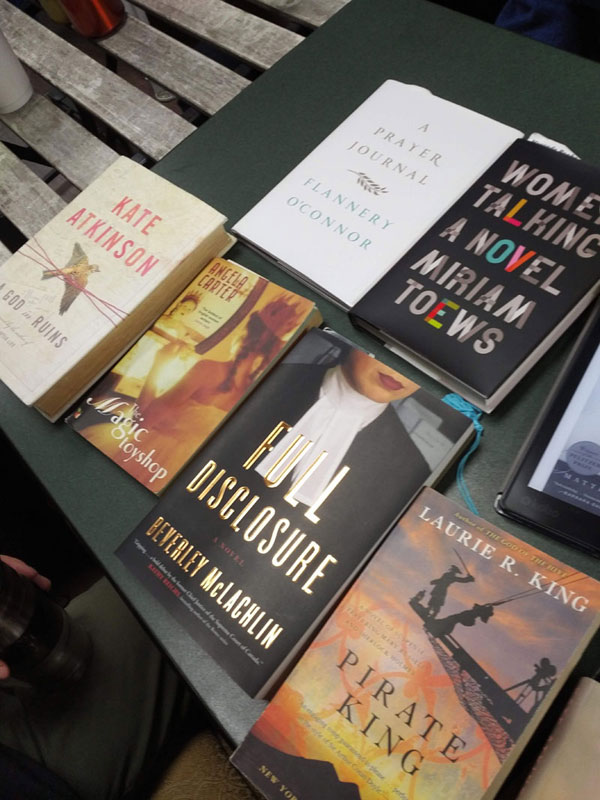
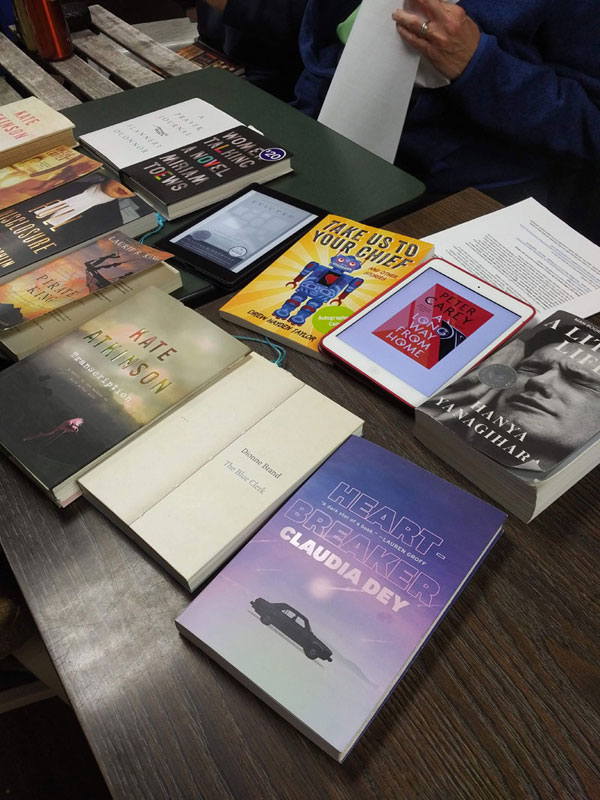
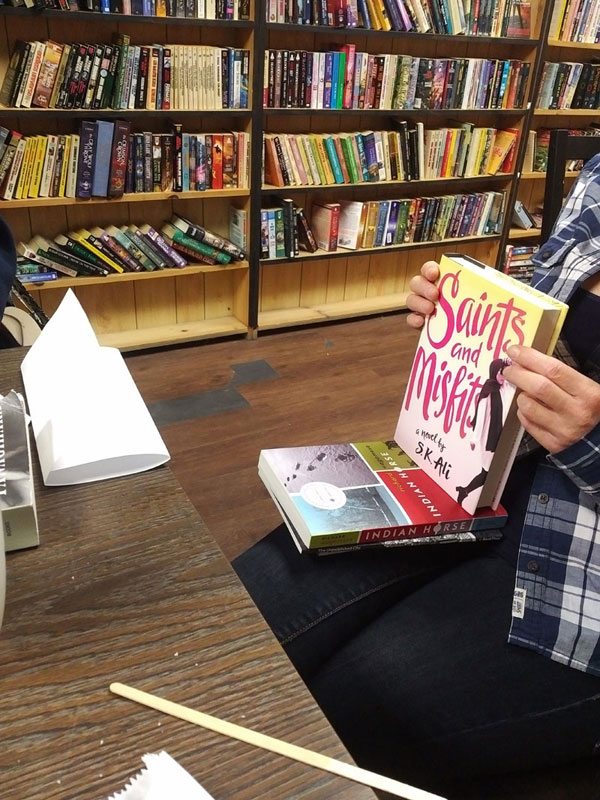
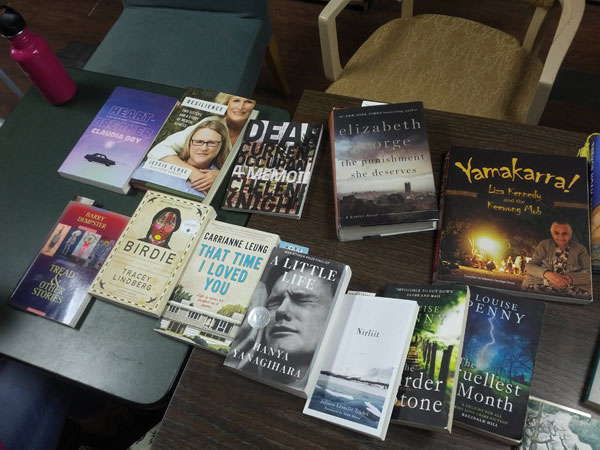
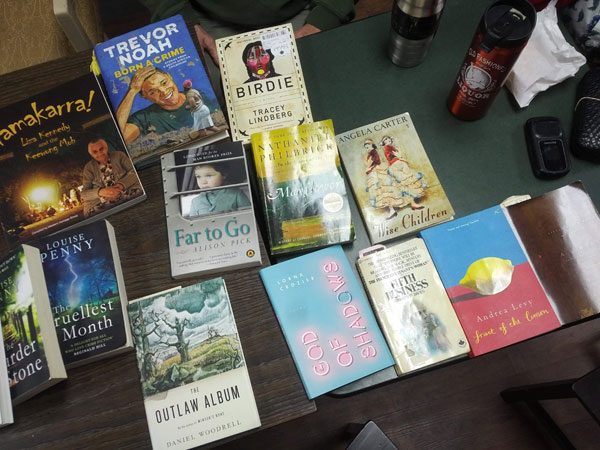
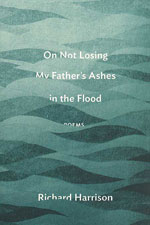 Richard Harrison’s wise and approachable poetry collection On Not Losing My Father’s Ashes in the Flood has the satisfying cohesiveness of linked short stories. His meditations on mortality are grounded in rueful realities, from the collection’s titular tragicomedy to the telling observations of lovers, children and even golfing partners. Those meditations become transcendent as and because they take the body as their humble starting point, as in the poignant “With the Dying of the Light”:
Richard Harrison’s wise and approachable poetry collection On Not Losing My Father’s Ashes in the Flood has the satisfying cohesiveness of linked short stories. His meditations on mortality are grounded in rueful realities, from the collection’s titular tragicomedy to the telling observations of lovers, children and even golfing partners. Those meditations become transcendent as and because they take the body as their humble starting point, as in the poignant “With the Dying of the Light”: